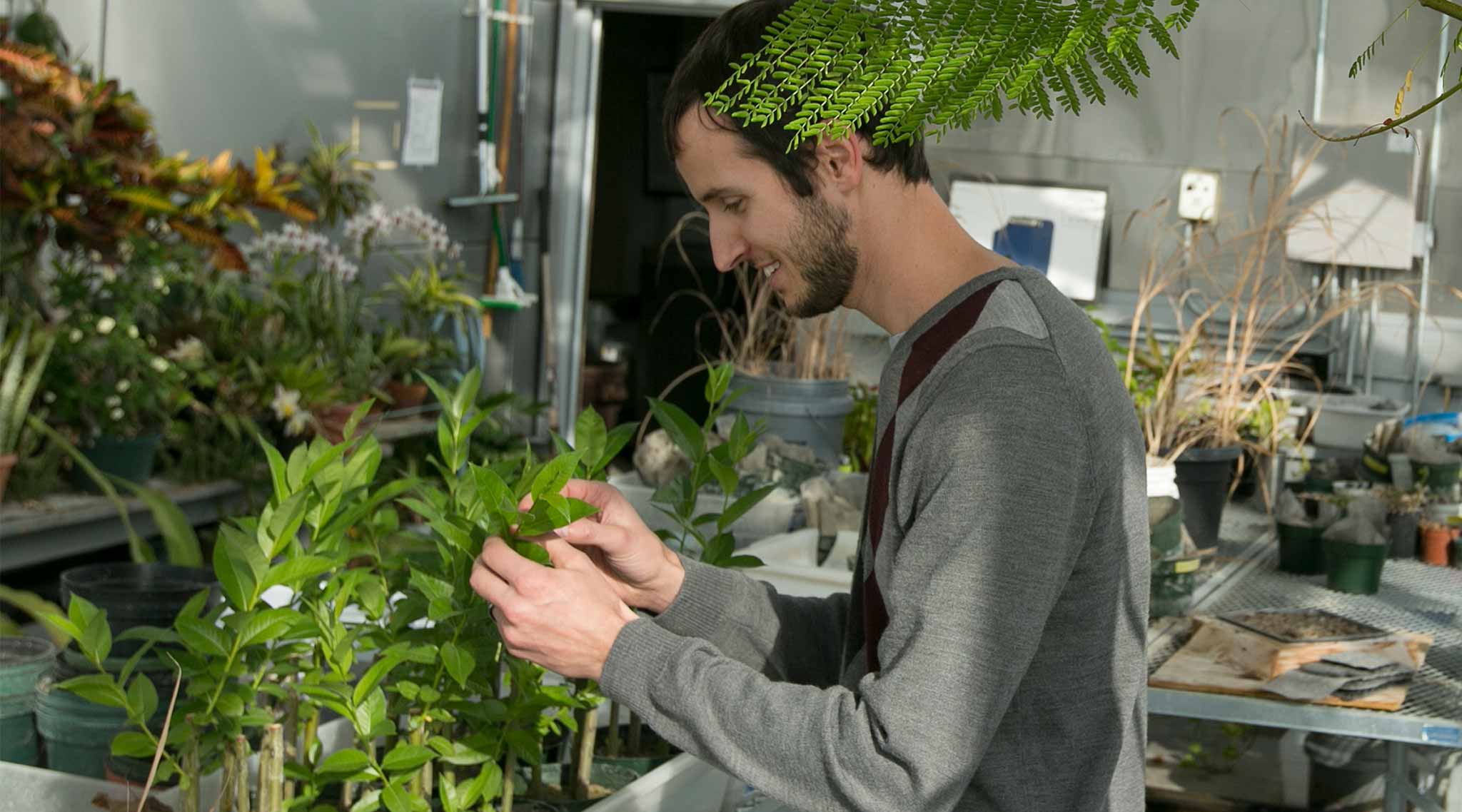Get started with Missouri S&T
Apply hereMaster of science
Sustainability points the way to the future. Engineering projects are expected to accommodate the world’s growing population while also preserving natural resources and protecting public health. Learn to shape these developments with an online master of science in environmental engineering from Missouri University of Science and Technology (Missouri S&T). Building from your existing background, this flexible, customizable course of study focuses on multidisciplinary engineering analysis, resource preservation and sustainable design.
Alongside opportunities to engage in research and refine your leadership skills, you’ll continue to hone your knowledge of chemical, biological, physical and environmental systems. This combination positions you to advance in your career, become an authority in sustainable engineering and pioneer new technologies, systems and infrastructure intended to preserve air, water and soil quality.
Interested candidates can apply directly or start exploring higher-level topics through Missouri S&T’s geoenvironmental engineering and mine reclamation graduate certificate programs.
Quick facts
Official name
Master of science in environmental engineeringCampus
Program type
Master's degreeAcademic home
College of Engineering and Computing | Department of Civil, Architectural and Environmental EngineeringDelivery mode
100% onlineAccreditation
Higher Learning CommissionCredit hours
30Estimated cost
$36,000.00Military credit hours
30Military estimated cost
$23,850.00*This cost is for illustrative purposes only. Your hours and costs will differ, depending on your transfer hours, your course choices and your academic progress. See more about tuition and financial aid.
Why earn an online master’s in environmental engineering?
Society has reached a turning point. As the planet’s population continues to increase, sustainable solutions for housing, food, water and energy become essential for survival. Yet, traditional construction methods, energy supplies and infrastructure are taking their toll, consuming resources and polluting the air, soil and water. Environmental engineers consider all factors to devise solutions that limit human impact, maintain the integrity of natural resources and reduce carbon emissions.
With the online master’s in environmental engineering, the Department of Civil, Architectural and Environmental Engineering equips graduates to transform the world through their outlook and expertise. Emphasizing original thought, applied learning and data-driven decisions, this program:
- Focuses on the physical, biological and chemical characteristics of natural and engineered environmental systems
- Equips you to develop systems and infrastructure in line with current environmental legislation
- Helps you champion sustainable developments that reduce carbon emissions, conserve water resources and protect public health
- Fortifies and expands your foundation in earth science, environmental chemistry, air pollution control, environmental microbiology, hydrology and related civil and geological engineering principles
- Exposes you to the current state of our world and the roles environmental engineers play in shaping and advancing sustainability
- Introduces you to the latest tools and techniques for protecting air, soil and water, reducing pollution, improving recycling and waste disposal and constructing sustainable buildings and infrastructure
- Trains you to guide communities and businesses toward a more sustainable future, including through new development and remediation efforts

Career prospects
A gradual yet purposeful push toward sustainable design is predicted to keep demand for environmental engineers steady over the next decade. According to the Bureau of Labor Statistics, the field will likely see 4% more positions between 2021 and 2031.
In government agencies, through industry roles and as consultants, environmental engineers shape project development from early discussions to material choices to assessing long-term impact at local, national and global levels. Potential job titles include:
- Water project manager
- Senior environmental engineer
- Environmental health and safety director
- Green building engineer
Program structure
The online master’s in environmental engineering requires 30 credit hours. Students tailor their program of study to their interests and career goals. Courses are 100% online in a streaming video format and use a semester schedule. No campus visits are required. Students typically take one or two classes each semester and finish in two to three years.
Under the guidance of the Department’s diverse faculty and through interdisciplinary collaborations, you’ll have the option of pursuing research. Topics span physical, chemical and biological water treatment, hazardous waste treatment, improving drinking water quality, groundwater and soil remediation and indoor air pollution control. Students have the opportunity to use Missouri S&T’s state-of-the-art research centers to conduct their own experiments.
Course work includes
Topics covered by the online master’s in environmental engineering include:
- Environmental law and regulations
- Air pollution sources, effects, legislation, transport, dispersion and control
- Soil mechanics
- Water resources and wastewater engineering
- Energy consumption, sources, storage, conservation and policy
- Population growth, poverty and impacts of development
- Sustainable infrastructure, materials and systems
Learn more about the structure of the online master’s in environmental engineering.
Delivery
100% onlineCalendar system
SemesterTypical program length
3 yearsTypical course load
1-2 classes per semesterAccreditation
Missouri University of Science and Technology is accredited by the Higher Learning Commission, one of six regional institutional accreditors in the United States.

Faculty spotlight

Areas of interest: Spacecraft shielding, effects of aerodynamic and seismic load, hypervelocity impact, MMOD risk assessments, orbital debris impact damage, ballistic limit predictions.
